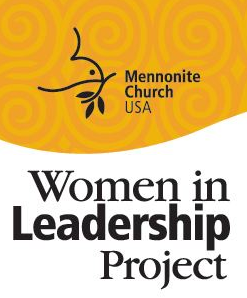 Linda Gehman Peachey is a free-lance writer, living in Lancaster Pennsylvania. She has an Master of Divinity degree from AMBS and is currently a Doctor of Ministry student at Lancaster Theological Seminary. Previously, Linda worked for Mennonite Central Committee on women’s concerns and also served with her husband Titus as co-director of Peace and Justice Ministries. She and Titus have two adult daughters and enjoy visiting them in Chicago and Guatemala. She is a member of East Chestnut St. Mennonite Church.
Linda Gehman Peachey is a free-lance writer, living in Lancaster Pennsylvania. She has an Master of Divinity degree from AMBS and is currently a Doctor of Ministry student at Lancaster Theological Seminary. Previously, Linda worked for Mennonite Central Committee on women’s concerns and also served with her husband Titus as co-director of Peace and Justice Ministries. She and Titus have two adult daughters and enjoy visiting them in Chicago and Guatemala. She is a member of East Chestnut St. Mennonite Church.
In recent years, I have learned much about power and privilege, and the way these qualities work together to give some people unfair advantages and a head start in life.
But this summer I started wondering if there is also a kind of blindness or deafness that often goes with privilege, an inability to see or listen carefully.
Being at the front of the line can mean not seeing or hearing what is behind you, and thereby missing out on major aspects of reality. Perhaps this is one reason the prophets and Jesus often urged, “Let anyone with ears to hear, listen!” For when privilege gives us the power to see or hear only what we want, we can easily miss seeing what God sees and where God is most actively at work in the world.
This has hit home for me in a deeper way as I have listened anew to stories of women who were sexually violated by leaders in the church. Fortunately, church leaders are starting to pay more attention to these experiences. Yet, in these stories it has often felt like men and women experience the world so differently, it is almost as if they inhabit separate realities. So many times when women have experienced harassment and rape, the men who should have intervened or prevented this violence, have often been totally oblivious to the damage that is happening right beside them. Women withdraw from school, move away, leave a job and exit the church and far too often, few understand why, or offer to help the woman find what she needs for healing and release.
Instead, when women have tried to speak up and share their experiences, they have been ignored, silenced, shamed or even threatened.
And they have been urged to forgive and reconcile with the perpetrator with little concern shown for their own safety and well-being.
So I have found myself wanting to cry out, urging all of us to use our ears and truly listen! For these women have so much to teach us about the world. Without their voice, we are in danger of perpetuating an incomplete and even false sense of salvation and God’s vision for humanity.
Another aspect of reality which has grown increasingly visible over the past year is the persistent and systemic way in which the police – and others – threaten and kill African-Americans. Tragically, it appears that once again people live in very different worlds.
I have had to recognize again that my experience as a white person in this society is so fundamentally unlike the daily life of my Black friends and family members.
Of course, such brutality and intimidation against African-Americans is not new and I should have known this if I had been paying more attention. James Cone makes this very clear in The Cross and the Lynching Tree. As he explains very powerfully, in the years after the Civil War, white folks attempted to hold onto their power and privilege by terrorizing African-Americans with torture and lynching. What is absolutely appalling is that these practices were carried out by white Christians, often at a public entertainment event attended by the whole community. How did I not know this? Why in all my college and seminary classes did I not have to struggle with this history?
Why am I only now starting to recognize the dreadful links between the cruelty of slavery, the violence of lynching and Jim Crow laws, and the current practices of police brutality and mass incarceration of people of color?
Surely, this is part of my privilege and power as a white person, that I could remain blind and deaf to so much terrible history. And truth be told, I could continue refusing to acknowledge these realities. Yet, I hear Jesus calling me to open my ears to listen and listen carefully. I need to hear what my African-American sisters and brothers are saying, what they are experiencing. I need to better understand. After all, this is what I want from men: that they pay more attention, and listen more carefully, to women who have experienced sexualized violence.
history. And truth be told, I could continue refusing to acknowledge these realities. Yet, I hear Jesus calling me to open my ears to listen and listen carefully. I need to hear what my African-American sisters and brothers are saying, what they are experiencing. I need to better understand. After all, this is what I want from men: that they pay more attention, and listen more carefully, to women who have experienced sexualized violence.
Somehow we must get past these walls which divide us, for it is not good for any of us to keep living in such separate worlds.
Of course, listening alone is not the only step we need to take. As a white person, I must also learn to be an ally, willing to take action under the direction of people of color. But I cannot do this with my eyes and ears covered. And so I find myself praying for the humility to follow Jesus’ call to “listen up!” And the courage to follow Jesus on the way, wherever this will lead.

